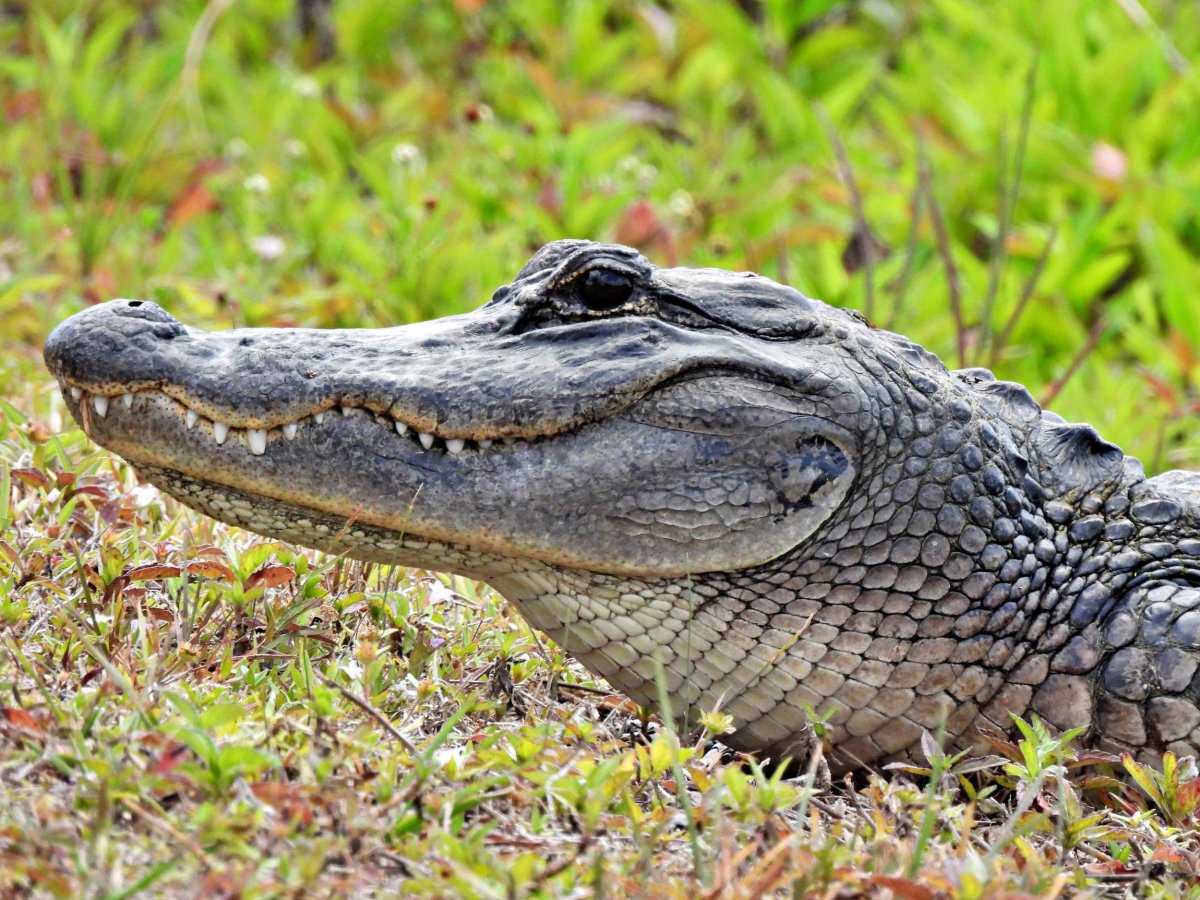A woman has given up an 8-foot-long alligator that had been living as a pet in her Philadelphia basement for 11 years.
The 127-pound reptile–named Big Mack—had been living in a makeshift enclosure under the house, Philadelphia TV station NBC10 reported. It said the alligator didn't have enough water or sunlight, which the animals need to thrive in the wild.
Officers from Philadelphia's Animal Control Unit found the alligator living behind a locked door, down a narrow staircase.
There were weights nearby, indicating that somebody also used the space to exercise, Sarah Barnett, executive director of animal shelter ACCTPhilly told NBC10.
Officials told NBC10 that they believe the owners—a husband and wife—had tried their best to look after the alligator.

The woman, identified as Yali, surrendered the alligator after splitting with her husband.
"My husband had him since 2011. We've had him all these years. He's been in the basement, but now we've separated and I want him out of here," Yali told NBC10.
Rescuers removed the alligator by binding its mouth and arms, before carrying it through the house.
They are now looking for a wildlife sanctuary or zoo that can take the alligator in.
"We had secured a plane to take him to Michigan, but he is too big to fit now, so we are looking at a local (within PA) option, we had hoped to avoid [that] because if they take him they will likely be full and unable to take any future ones we get," Barnett told Newsweek.
Rules on keeping alligators as pets vary from state to state. In some states it is legal, while other states require a permit, and others have an outright ban on keeping alligators.
The Pennsylvania Fish and Boat Commission does not regulate the possession of non-native reptiles and amphibians, such as alligators.
"So long as these animals are not released into the wild, there are no state regulations regarding their ownership. Likewise, there is no state permit required to possess these animals. However, there may be local municipal ordinances, which regulate the ownership of 'dangerous animals' and you should check with your local government before purchasing such an animal," the Commission said on its website.
Alligators can be highly dangerous, especially when they feel provoked or threatened. Exotic pet ownership can be dangerous for this reason.
In the wild, alligators live in freshwater rivers and swamps. The animals need fresh water to control their body temperature.
The animal care center praised the alligator's owners for coming forward to seek help.
"Alligators are illegal to release but not to own, however, it is illegal to keep exotics with a propensity to be dangerous in Philadelphia, and at his size he fits that definition," Barnett told Newsweek. "We aren't pursuing any charges because we don't want people to hesitate to call us, and instead release animals like this which is detrimental to the animal as well as puts the public at risk. We want people to reach out and ask for assistance, and not be punished for doing so."
ACCTPhilly told NBC10 that Big Mack was the fourth large reptile they have removed in a month. A caiman was euthanized after it was rescued from Philadelphia's Franklin Delano Roosevelt Park, where it was found roaming last month, NBC10 reported. The animal was put down as there was no available sanctuary for it.
There are an estimated 17 million exotic pets living in nine million households across North America. Just over half of these exotic pets are reptiles, like Big Mack. Around 26 percent are exotic birds.
Update 4/20/23, 5:08 a.m EDT: This article was updated to add quotes from Sarah Barnett, executive director of animal shelter ACCTPhilly.
Do you have an animal or nature story to share with Newsweek? Do you have a question about alligators? Let us know via nature@newsweek.com.
Uncommon Knowledge
Newsweek is committed to challenging conventional wisdom and finding connections in the search for common ground.
Newsweek is committed to challenging conventional wisdom and finding connections in the search for common ground.
About the writer
Robyn White is a Newsweek Nature Reporter based in London, UK. Her focus is reporting on wildlife, science and the ... Read more
To read how Newsweek uses AI as a newsroom tool, Click here.








